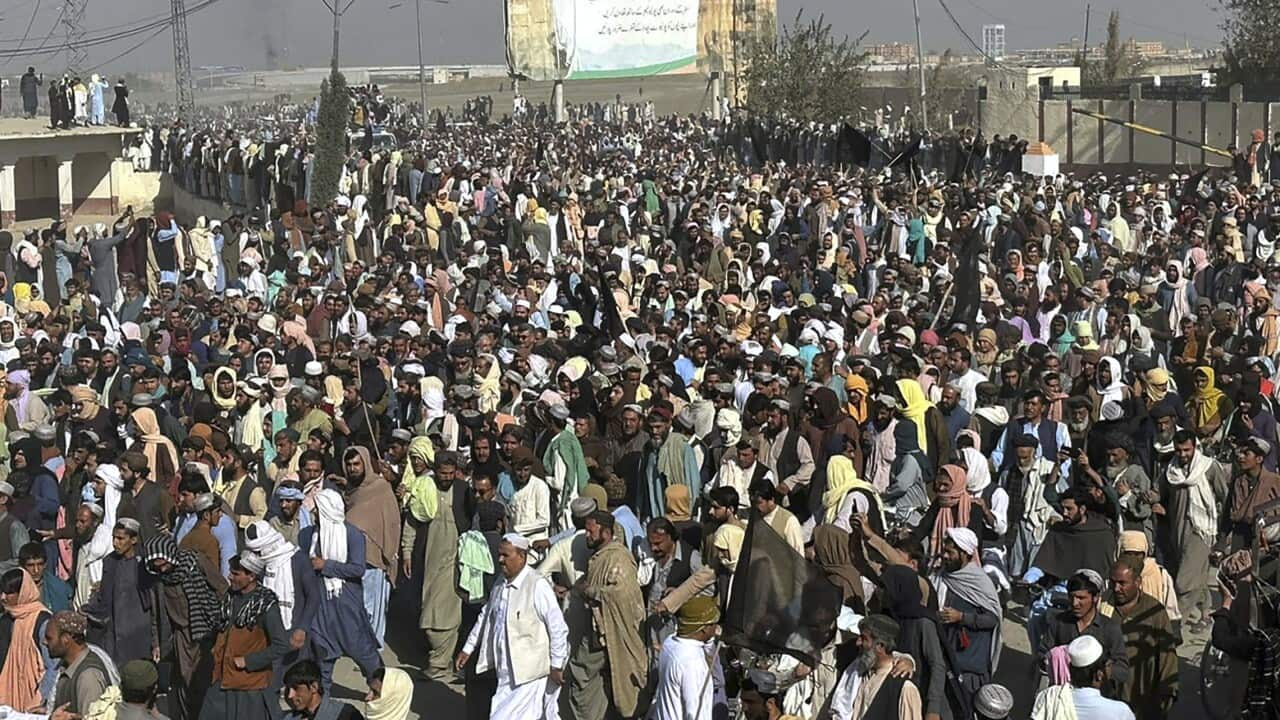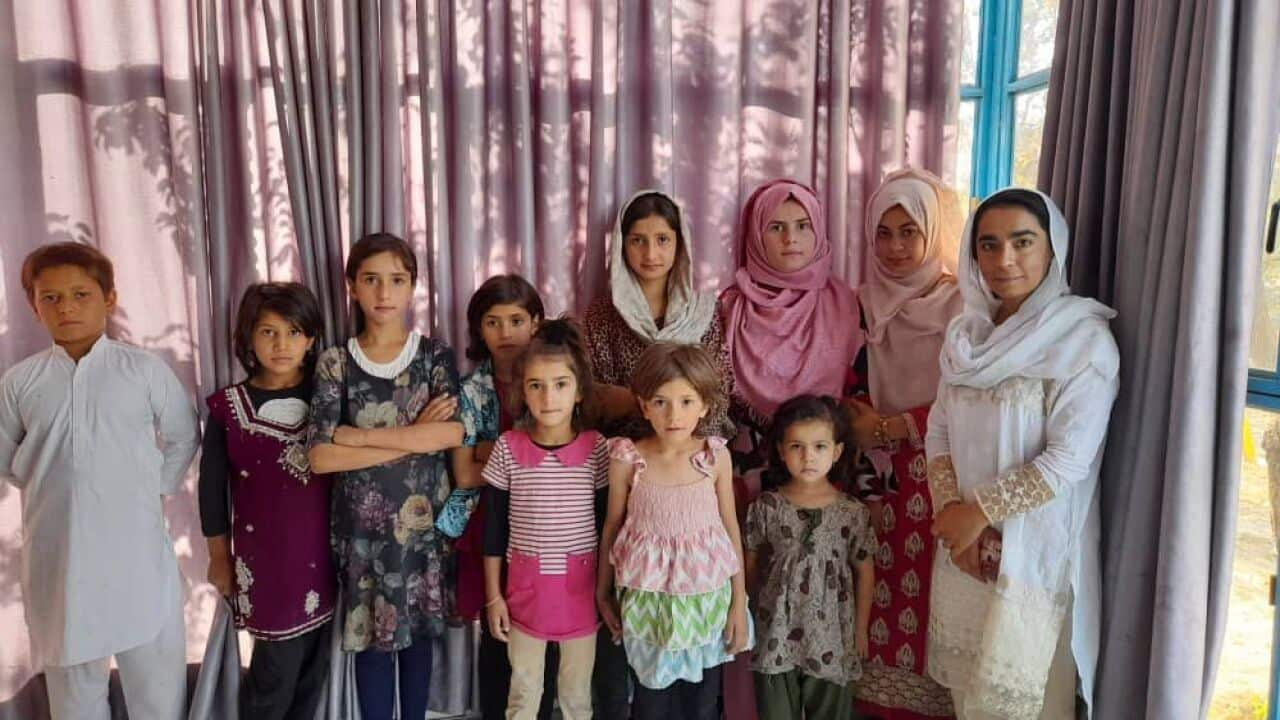Ahmad risked his life working as an interpreter for Australian forces in Afghanistan.
To the Taliban, he was a spy. On more than one occasion, he found himself caught in an ambush by the notorious militant group.
"At the beginning, we didn't have any enmity with the Taliban," Ahmad, who is being referred to under a pseudonym for his safety, told SBS News.
That changed, he added, when he started working for and receiving a salary from an Australian security company.
Ahmad worked in this role up until August 15 2021, entered the abandoned presidential palace and negotiated to replace the collapsed Western-backed government.
Three months later, he was arrested, spent nine months in prison and upon his release, escaped to neighbouring Pakistan.
It is here that Ahmad has been living ever since while the Taliban-ruled Islamic Emirate of Afghanistan slides deeper into a humanitarian catastrophe.
But his time is running out. He is one of up to 1.7 million Afghans who will be forced to leave Pakistan by 1 November.
Authorities have already begun rounding up undocumented migrants and preparing to forcibly deport them. Ahmad is among those in hiding.
While the Pakistani government says nearly 1.4 million Afghans are "legally" allowed to stay inside the country, others "must exit" before the end of the month.
Ahmad has applied for an Australian humanitarian visa, and says he has a case number from the Department of Home Affairs, but has no recent updates.
Now he is calling on the Australian government to "urgently process" and support "all those who have assisted during their presence in Afghanistan".
"In this one month since they announced [the deportation of illegal refugees], it has been very difficult for Afghans. No one is renting them homes and hospitals don’t accept them," he said.
"Not only me but all the police, army, intelligence personnel and interpreters – those who cooperated with ISAF (International Security Assistance Force) and foreigners, they will destroy all of them."
International rights groups are concerned that sending more than one million Afghan nationals back to Taliban-controlled Afghanistan could lead to serious human rights violations.
"Afghans in Pakistan have been a political football essentially being kicked back and forth between the two countries with very little regard for their rights," Daniela Gavshon, director at Human Rights Watch Australia, explained.
"Resettlement countries have been really dragging their feet and this recent announcement by the Pakistani government has really caught the United Nations off guard."
"What it means though is that Afghans are facing the threat of being returned home to face Taliban persecution and what we know is a humanitarian crisis in Afghanistan at the moment."
Following the fall of Kabul, in the two years from August 2021 to August 2023, the Australian government has granted more than 13,000 permanent humanitarian visas to Afghan citizens, under its offshore humanitarian program.
'Forgotten crisis'
However, forced deportation is not the only crisis Afghan nationals are facing. The Taliban reports that more than 2,000 people have so far died in recent earthquakes around Herat province. With winter approaching, there are fears for 44,000 struggling to survive.
Sally Thomas, the Caritas Humanitarian Emergency Lead in Australia, said, "3,000 homes have been completely destroyed and many more have been damaged. People are too scared to even go into their homes, but especially to sleep in their homes.
"They don't feel safe. So many are sleeping outside in tents. It's starting to get very cold. Winter is coming and they don't have many supplies with them."
UNICEF said 90 per cent of those killed were women and children.
Australian charity Mahboba’s Promise has 50 staff in Afghanistan who are supplying essentials in Herat province and helping survivors cope with longer-term trauma and loss.
The organisation's vice president, Nawid Cina, said, "It's terrible - there's a child who has lost 34 members of their family. So, all their direct immediate family was killed. They are in a state of shock.
"So we've also sent workers that have professional expertise on mental health first aid response. We've sent a bunch of activities, games, books for these children, and we'll be guiding them through that process as well, just as a first-step response. But they will need decades of help."
Aid agencies say more international aid is needed to tackle a ‘forgotten crisis’ - with the eyes of the world focused on conflict in the Middle East.












